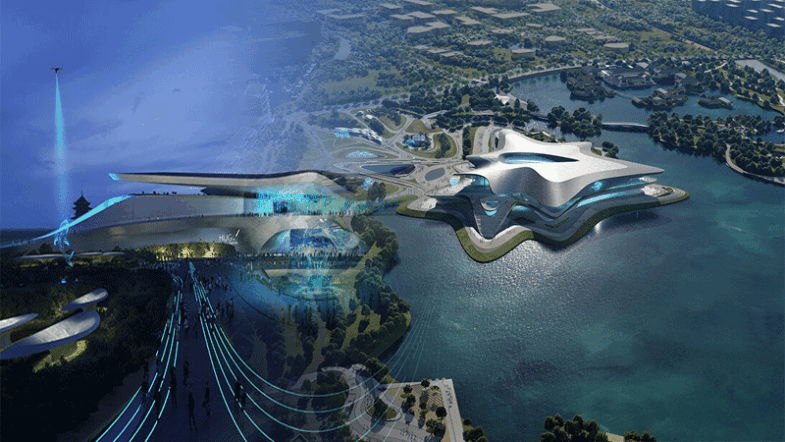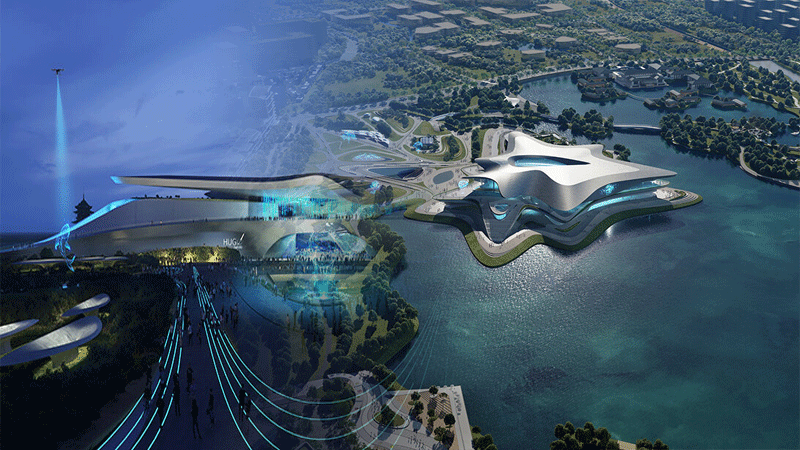Chengdu is a center for China’s growing interest in science fiction thanks in part to the success of Science Fiction World magazine, published in the city.

Zaha Hadid Architects (ZHA) has unveiled its futuristic design for a science fiction museum now being built in Chengdu, China, conceived by the architect as an asymmetrical star that floats on a lake.
ZHA said it developed the design through a digital modelling process that related the fluid form of the building to a single point at its centre, suggesting a dust cloud in the process of condensing to form a star.
The 59,000-sq-m building will aim for three stars, the highest rating of China’s Green Building Program. Digital modelling will help ZHA create natural ventilation and lighting. Solar panels and a rainwater capture system will add to the building’s sustainability. The center will have exhibition space, a conference center, and a theatre.
Chengdu, capital of the central Chinese province of Sichuan, is a center for China’s growing interest in science fiction thanks in part to the success of Science Fiction World magazine, published in the city. The new museum will host the 81st World Science Fiction Convention in October this year.
The city is familiar to ZHA, who was commissioned to design the 67ha Unicorn Island masterplan in the Tianfu New Area, which was begun in 2018 to accelerate China’s development of a digital economy.
The city is also the base for a massive 25-sq-km “Science City”, to be constructed along the Luxi River ecological belt, and is also the base for China Railways’ work on ultra-high speed maglev trains (see further reading).
The museum will be built on the shore of Jingrong Lake in Chengdu’s Technology Innovation Business District, begun in 2020 to house science-based industries such as intelligent manufacturing and IT.
The project team includes China South West Architecture as structural, MEP, fire and façade engineer, China Construction Third Engineering Bureau Group as main contractor. The landscape will be handled by the Hangzhou Landscape Design Institute.
Originally published at Global Construction Review
